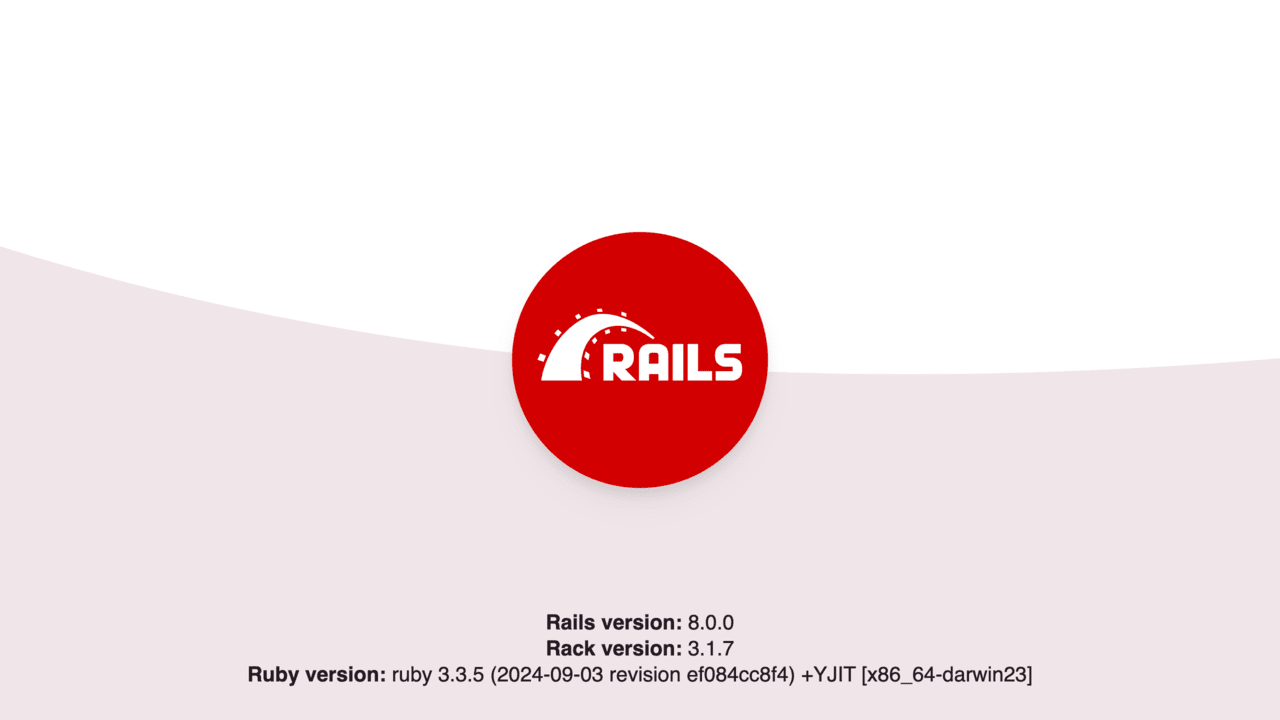Carapeastra Insights
Your go-to source for news and information on a variety of topics.
Rails and Tales: Adventures in Ruby Development
Explore the wild world of Ruby development with Rails and Tales! Uncover tips, tricks, and epic adventures that will level up your coding game.
Getting Started with Ruby on Rails: A Beginner's Guide
Getting Started with Ruby on Rails is an exciting journey for any aspiring web developer. Ruby on Rails, often referred to as Rails, is a powerful web application framework that allows you to build database-backed applications quickly and efficiently. If you are new to programming or web development, don’t worry! This guide will introduce you to the fundamentals of Rails and help you set up your local development environment. Begin by installing Ruby and Rails on your machine. You can find detailed installation instructions in the official Ruby on Rails Getting Started Guide.
Once you have your development environment ready, it’s time to explore the structure of a Rails application. Rails follows the Model-View-Controller (MVC) architecture, which separates your application's logic into three interconnected components. To get a hands-on experience, try creating your first Rails application by running the command rails new myapp in your terminal. This generates a new directory with all the necessary files. Don't forget to check out Rails Guides for further insights and tips on building your application.

Top 10 Ruby Gems Every Developer Should Know
When it comes to building robust and efficient applications in Ruby, knowing the right tools can make all the difference. Here are the Top 10 Ruby Gems Every Developer Should Know:
- Rails - The cornerstone of web development in Ruby, Rails is an all-in-one framework that simplifies the creation of database-backed web applications. For more on Rails, visit Ruby on Rails Official Site.
- RSpec - This is a must-have tool for behavior-driven development (BDD) in Ruby. RSpec helps you write expressive and readable tests, ensuring high-quality code. Learn more at RSpec Official Site.
- Capybara - Useful for integration testing, Capybara simulates how a user interacts with your application, allowing for thorough testing of user interfaces. Check it out at Capybara GitHub.
- Puma - A fast and concurrent web server that is perfect for Ruby applications. Puma's performance makes it a favorite among developers. For more details, see Puma Official Site.
- Sidekiq - This gem is used for background processing with Redis, making it easy to handle long-running tasks efficiently. Discover more at Sidekiq Official Site.
Continuing the list of essential Ruby gems, here are more gems that can enhance development productivity:
- Devise - A flexible authentication solution for Rails applications, Devise handles user registration, password recovery, and account management. Learn more at Devise GitHub.
- ActiveRecord - This gem provides an intuitive interface for interacting with databases in Ruby, making data manipulation straightforward. Explore it further at ActiveRecord Basics Guide.
- Paperclip - Simplified file attachment management in Ruby applications, Paperclip makes it easy to upload images and other files. More information can be found at Paperclip GitHub.
- Factory Bot - Essential for test data creation, Factory Bot allows developers to create sample data easily and maintainably. Learn more at Factory Bot GitHub.
- SimpleCov - This is a code coverage analysis tool for Ruby, ensuring that your tests cover the necessary parts of your application. Check it out at SimpleCov GitHub.
Troubleshooting Common Issues in Ruby Development: Tips and Tricks
When diving into Ruby development, encountering issues is part of the learning curve. One common challenge developers face is gem dependency conflicts, which can arise when different projects require different versions of the same gem. To troubleshoot this problem, consider using tools like Bundler, which helps manage gem dependencies effectively. Additionally, running bundle update can often resolve version conflicts, but it's essential to review your Gemfile.lock to ensure compatibility before making any updates.
Another frequent issue in Ruby development is performance bottlenecks, often caused by inefficient code or excessive memory usage. To identify and resolve these issues, leverage profiling tools such as Ruby's built-in Profiler or more advanced options like Rack Mini Profiler. By pinpointing slow methods or memory-hogging processes, developers can refactor their code for better performance. Don't forget to regularly test your application with a tool like RSpec to catch issues early in the development process.